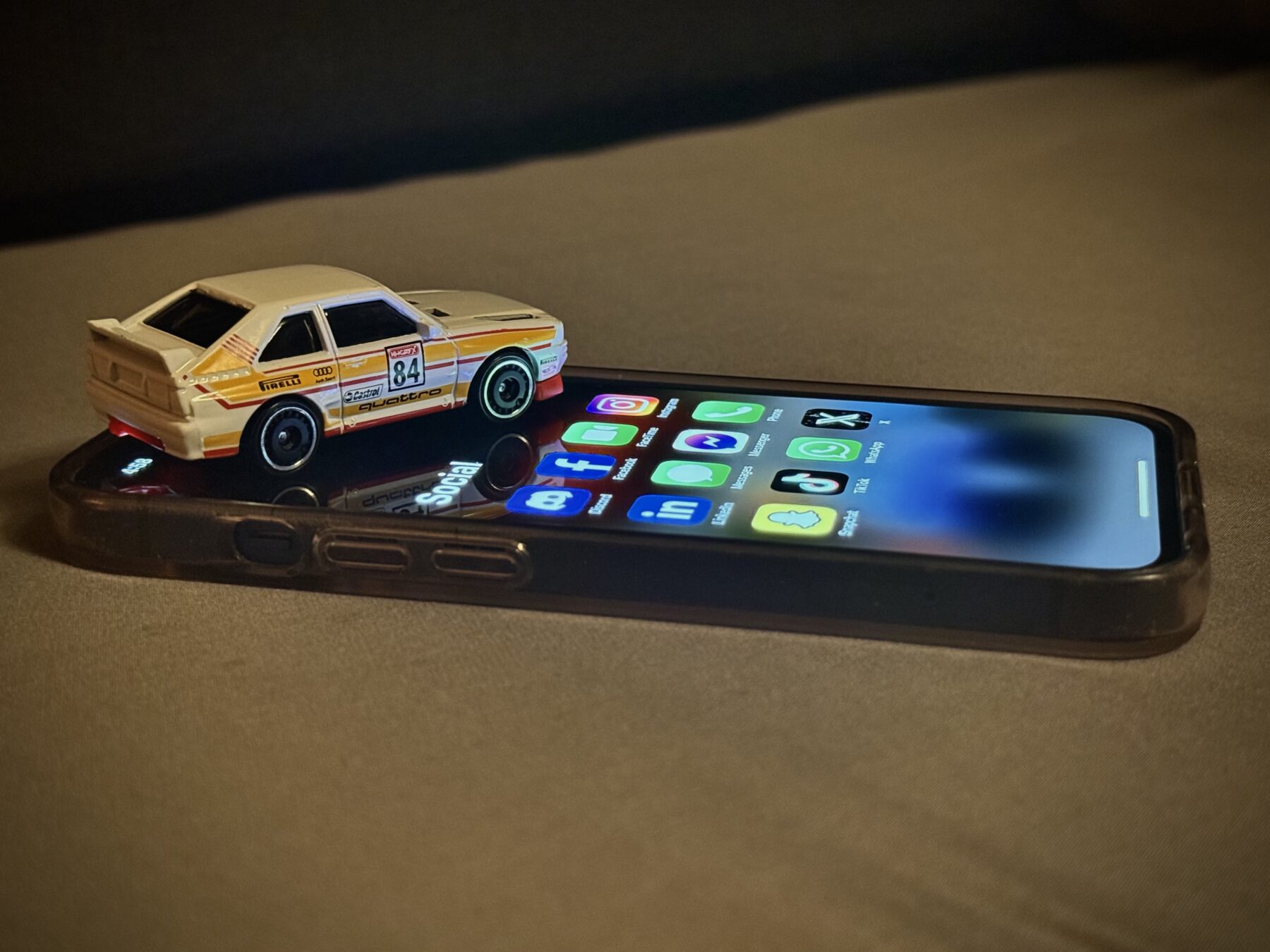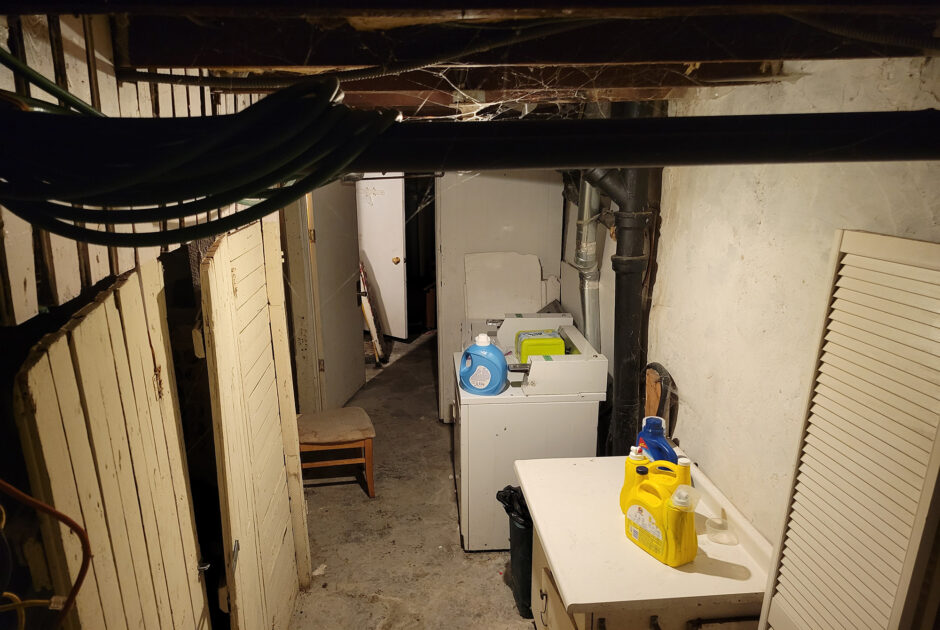Opinion: Social media ruined the car community forever

Did that headline grab your attention? Love it or hate it, you’re here now, reading my take on it. That’s the power of clickbait — a double-edged sword in today’s online world. It’s great for businesses, helping them reel in customers. But for communities like us car enthusiasts? It’s often a mixed bag, stirring up drama and making trends burn out quicker than a bad clutch.
Okay, hear me out. I know you’ve probably made some great car buddies through Instagram, but is that really the best way? It’s like comparing online dating to meeting someone in real life. Sure, swiping right is easy, but nothing beats the feeling of locking eyes with someone across a crowded bar.
It’s the same with cars. Double tapping a sweet ride on Instagram is cool and all, but it doesn’t compare to the rush you get when you spot a slammed BMW E30 in your local Metro parking lot. That moment when you walk over to drop a compliment and end up sitting on your hood deep in car talk for hours. That’s the real deal; no filter needed.
Now, picture this: You’re rolling up in your Golf R, ready to run it against a Honda Civic Type R, the Golf R’s controversial but so-called equivalent. You’ve “upgraded” your ride, 2025-style, all inspired by the hottest TikTok trends. Your Golf is slammed so low it practically kisses the pavement. You’ve slapped on some massive 20-inch rims, and there’s a body kit straight from the TikTok shop hugging every curve.
You’re feeling pretty slick until that stock Type R pulls up, and the driver can’t help but chuckle. Why? Because while you were busy chasing likes, you’ve turned your powerful car into a rolling Instagram post. Your Golf now handles like a shopping cart with a wonky wheel, those huge rims have your acceleration feeling like you’re dragging an anchor, and your fuel economy? Let’s just say you’re on a first-name basis with every single gas station attendant in town.
It’s like comparing a drag race to endurance racing. Those social media likes, they’re the quarter-mile sprint. A quick rush that’s over before you know it. But building a car you truly love? That’s the 24 Hours of Le Mans. It’s a long game, full of ups and downs, but the satisfaction at the finish line? Unbeatable.
Don’t get me wrong, social media isn’t all bad news. For car businesses, it’s like nitrous for their marketing engine.
Take Tristan Languedoc, an Algonquin College business management graduate and owner of PitStop Boys Inc., for example. He’s seen firsthand how social media can rev up a detailing business.
“Until last year, I hadn’t really paid for any ad campaigns,” said Languedoc. “It was all word of mouth, but the social media has had a big impact.”
What makes social media so powerful for local businesses like Languedoc’s is connecting with the right audience.
“I don’t have a ton of followers, but the followers I do have, they’re local,” he said. “If you have a decent following in your local community, with the people who actually give you the business, it’s like having a place where people can look at your entire catalog of work.”
But Languedoc acknowledges the downside of social media trends. “Like the Christmas tree and the lights on the car trend, people wouldn’t do that unless it was for social media.”
A more concerning aspect of social media’s influence is the way it can normalize and even encourage dangerous and illegal modifications. Look, I get it. Some window tint here, a louder exhaust there, we’ve all bent the rules a bit. But some of these trends are straight-up dangerous. Take those coloured lights that are popping up everywhere, whether they’re Christmas lights or fake police lights. You know who’s supposed to have those? Real first responders. Not your slammed Civic.
And don’t even get me started on disabling safety features. Sure, it might look cool in photos, but it won’t be so Instagram-worthy when you’re explaining to a cop why your airbags don’t work.
The problem is, when one influencer does it, suddenly everyone’s copying. It’s like a game of follow-the-leader, except the prize is a fine, or worse, an accident. These aren’t just harmless trends; they’re putting everyone on the road at risk. And for what? A few extra likes? Come on, we’re better than that.
Aidan Lee, an automotive service technician student at Algonquin College, said “you have two spectrums in the community.” On one side, people judge you for everything you do, but in “some forums, no matter what you do, everybody has to be supportive.”
So, what’s the verdict? Social media isn’t inherently evil. It’s a tool that can be used for good or ill. It’s time to steer away from the copy-paste culture and bring back the spirit of creativity and friendship that’s always been at the heart of the car community.
Let’s get back to those real-life car meets, make genuine connections and build cars that reflect our own unique vision, not the latest TikTok trend.
By all means, keep posting on social media, but like Lee said: “Do something different, you’ll feel a lot better.”
Let’s put the “social” back in social media and, most importantly, keep our roads safe for everyone. Now, who’s up for a cruise?








